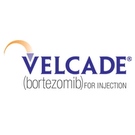Articles tagged with: Dexamethasone
News»

The findings of a recent study indicate that the combination regimen of Revlimid (lenalidomide) and dexamethasone (Decadron) is effective and safe in multiple myeloma patients with reduced kidney function and may even improve kidney function in some patients when the Revlimid dosage is adjusted according to kidney function. The study was published in the European Journal of Haematology.
Because of its effectiveness, the combination of Revlimid and dexamethasone (RD) has become a standard treatment option for patients with relapsed or refractory myeloma. However because Revlimid cannot be broken down …
News»

Exposure to prior myeloma therapies, specifically thalidomide (Thalomid) and autologous stem cell transplants (ASCT), does not influence the superior efficacy of Velcade (bortezomib) compared to dexamethasone (Decadron) in patients with relapsed/refractory myeloma, according to an analysis published in the British Journal of Haematology.
Researchers had previously found that Velcade resulted in a better response rate, time to progression, and overall survival compared to dexamethasone in relapsed/refractory myeloma patients. Based on these results, Velcade has become one of the standard treatments for relapsed/refractory myeloma patients.
Previous trial results had also shown …
News»

A new study published in the journal Leukemia determined that when treated with Revlimid (lenalidomide) and dexamethasone (Decadron), relapsed and refractory myeloma patients with genetic risk factors experience lower response rates and shorter progression-free and overall survival durations.
Researchers also discovered that prior treatment with thalidomide (Thalomid) was associated with a decreased progression-free and overall survival.
Multiple myeloma patients with the chromosomal abnormalities del(13), t(4;14) or del(17p) are associated with a poorer prognosis in response to traditional chemotherapy. However, new drug and treatment options have the potential to overcome …
News»

The use of thalidomide (Thalomid) in induction and maintenance therapies for multiple myeloma patients receiving a stem cell transplant resulted in better overall response rates but did not significantly improve overall survival, according to a Phase 3 study recently published in the journal Blood.
In their study, researchers randomly assigned 556 patients to receive three cycles of either vincristine (Oncovin), doxorubicin, and dexamethasone [VAD] or thalidomide, doxorubicin (Adriamycin), and dexamethasone (Decadron) [TAD] as induction therapy. All patients received high-dose melphalan (Alkeran) with an autologous stem cell transplant, …
News»

A recent study published in the Journal of Clinical Oncology determined that patients who achieved very good partial response (VGPR) or better after high-dose chemotherapy and stem cell transplantation experienced significantly longer event-free and overall survival.
“Very good partial response” is one of the terms defined by the International Myeloma Working Group (IMWG) to categorize how patients respond to treatment. According to IMWG criteria (see related Beacon news), patients reach very good partial response when the level of abnormal “M” proteins in their blood decreases by 90 percent.
Previous studies evaluating …
News, Resources»

Curcumin has been garnering increased attention as a potential anticancer treatment. It is the major active compound in turmeric, a popular Indian spice made from the rhizomes, or underground stalks, of a plant in the ginger family.
In multiple myeloma and the precursor condition monoclonal gammopathy of undetermined significance (MGUS), cell culture studies and one animal study have shown that curcumin can kill cancer cells and prevent them from multiplying. The Beacon also found two early-stage clinical trials studying curcumin’s effects in people with multiple myeloma and …
News»

A new study published in the British Journal of Haematology suggests that the drug combination regimen of Revlimid (lenalidomide), cyclophosphamide, and prednisone (RCP) is highly effective in multiple myeloma patients who are refractory (not responsive) to Revlimid-dexamethasone (Decadron) treatment.
The researchers of the study had previously shown that continuous low-dose oral cyclophosphamide in combination with prednisone was effective in relapsed multiple myeloma. To further improve the efficacy of the oral regimen, they added Revlimid to the drug combination.
The clinical trial enrolled 14 multiple myeloma patients who …
